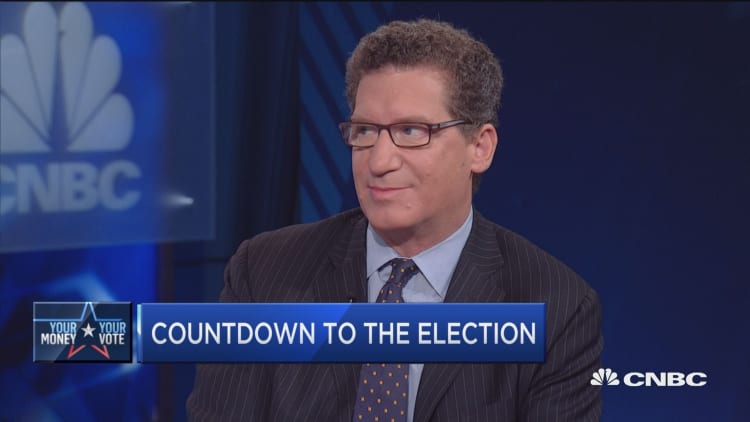
Investors dumped perceived safe trades on Monday, a day after FBI Director James Comey informed Congress that the bureau had "not changed its conclusions" on Hillary Clinton's use of a private email server.
Prices for U.S. Treasurys — the classic "safe haven" investment — fell, sending their yields higher: the two-year note yield rose to near 0.82 percent and the benchmark 10-year yield rose to around 1.817 percent. The face value of bonds move in opposite directions of yields.
Gold fell $23 lower to $1,281.60 per ounce. The CBOE Volatility Index (VIX), widely considered the best gauge of fear in the market, traded 12 percent lower, near 19.8, and was on track to snap a nine-day streak of gains.
The Japanese yen, considered a safe-haven trade in currencies, fell more than 1 percent to 104.5 yen to the dollar.
Investors had recently taken off riskier positions from their portfolios, after Comey said 11 days before Tuesday's election that the bureau would start a new investigation into Clinton emails found on disgraced congressman Anthony Weiner's computer. After that, Clinton's lead in the polls over Donald Trump narrowed significantly, according to data from RealClearPolitics.
Prior to Comey's surprise announcement on Oct. 28, financial markets in the U.S. and around the world had been largely pricing in a victory for Clinton over Trump.
However, Luke Hickmore, senior fixed income fund manager at Aberdeen Asset Management, told CNBC on Monday that "no one should conclude that this campaign is over or that Hillary is going to win."
"Financial markets are edging toward Clinton largely because of polling, and we saw in the U.K.'s Brexit referendum how wrong that can be. The memory of that referendum should loom large in investors' memories because so much of the polling was wrong then," he said, referring to the United Kingdom's surprise vote in June to divorce itself from the European Union.
—CNBC's Javier David contributed to this report.


